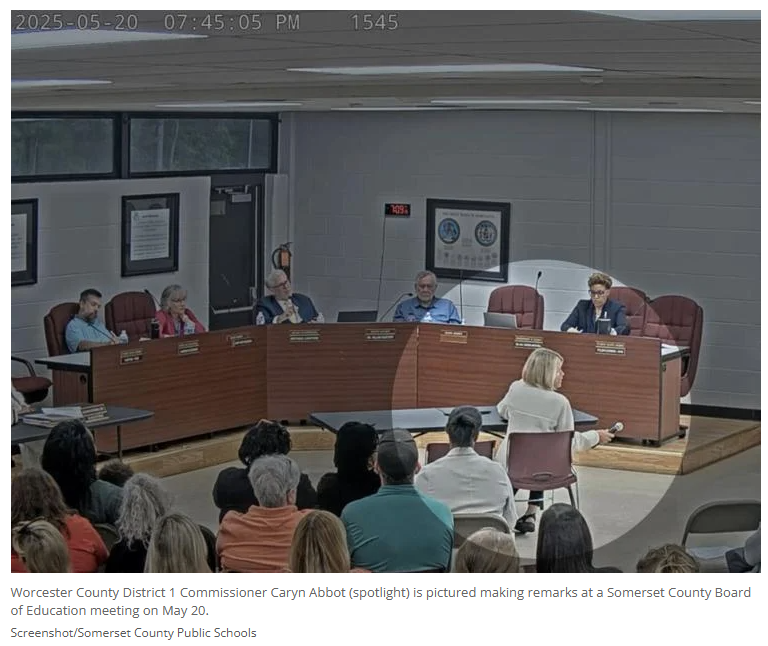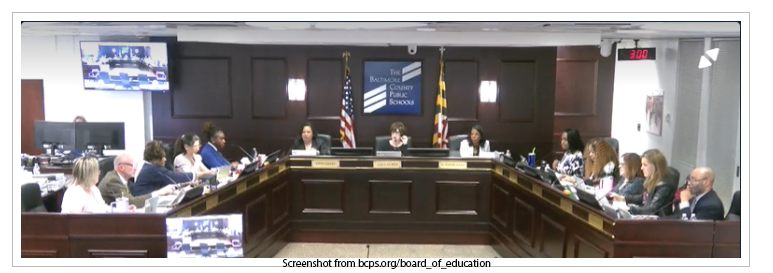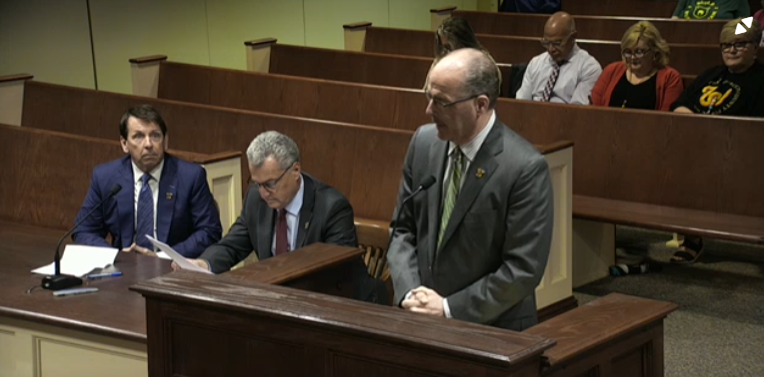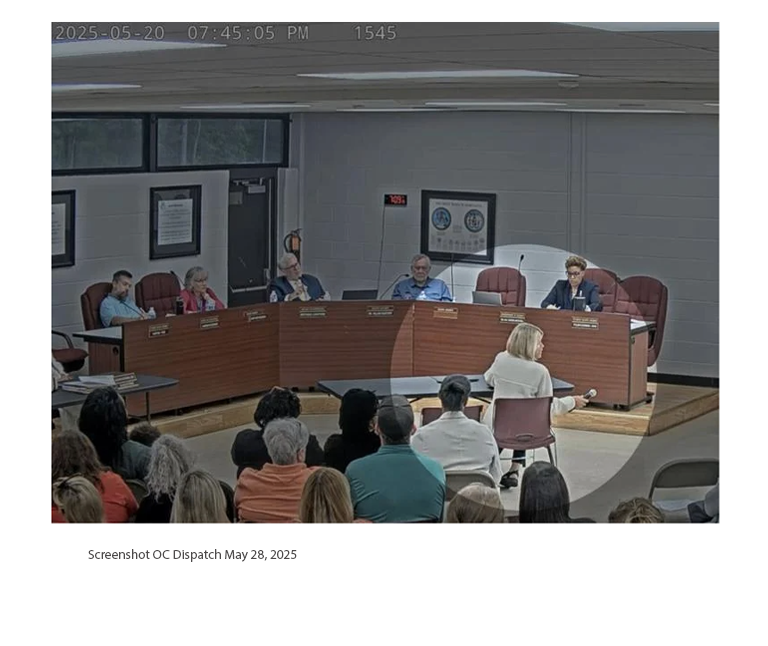
A State Said Districts Had to Report Spending on DEI. Some Defied the Mandate
Some of the largest school districts in Oklahoma have defied a new state mandate to report their spending last school year on diversity, equity, and inclusion initiatives. Others that complied with the directive, meanwhile, worry that reporting their DEI spending could lead the state to revoke their accreditation, as happened recently in several districts with DEI initiatives.
The requirement to report the spending in Oklahoma is part of a broader nationwide crackdown on DEI initiatives led by GOP officials in many states. Oklahoma’s newly elected state superintendent of instruction, Ryan Walters, who took office in January, has emerged as a high-profile conservative state education chief since his November election to the position and before that as a member of Republican Gov. Kevin Stitt’s cabinet.
In January 2023, Walters required that higher education institutions report their DEI spending over the last decade. Three months later, he proposed extending the requirement to public K-12 schools.
“It would be more accurate to call them divide, exclude, and indoctrinate. That’s really what these programs are,” Walters said to members of Oklahoma’s state board of education at the April 27 meeting where he proposed the new requirement.
“What these programs are, are programs developed by radical leftists to indoctrinate our kids into not believing in themselves and their individual identity and to be successful on their own merits,” Walters said at the time. “What it seeks to do is divide and is Marxist at its core, and we have to reject this in our schools.”
The state board voted unanimously to require districts to submit a detailed preliminary report on DEI spending in and out of the classroom by June 9, as well as a final version by Sept. 1. Districts were to report their spending from the 2022-23 school year and indicate whether they planned to continue such spending in 2023-24.
Spokespeople for two of Oklahoma’s 10 largest districts, Lawton Public Schools and Oklahoma City Public Schools, told Education Week their districts did not submit preliminary reports—not necessarily because they didn’t spend any money to promote diversity, equity, and inclusion, but because they aren’t investing in any initiatives that align with Walters’ stated definition.
The 13,700-student Lawton district serves a large population of military students, and has several programs to make them feel like they are part of the district, said Paul Hime, the district’s superintendent. However, none of them fall under “divide, exclude, and indoctrinate,” he said.
“True diversity, equity, and inclusion is a very active program for military students because … when they move to a new school, you want to include them and feel like they’re part of you,” Hime said.
Some districts that did report investments, meanwhile, had little to share. The 15,000-student Union Public Schools spent $1,200 for two administrative staff members to attend a DEI conference hosted by the nonprofit Oklahoma Center for Community and Justice, said Chris Payne, the district’s chief communications officer.
That investment amounts to 8 cents per student. The district’s overall annual spending in recent years hovered around $9,000 per student.
Walters hasn’t shared what the state will do with the spending data, or whether any sanctions are in order for districts that spent what the state considers to be too much on DEI.
But the state has already imposed punishments on at least two districts for DEI-related initiatives, including teacher training on implicit bias and classroom exercises for students to recognize their own privilege. Tulsa Public Schools and Mustang Schools had their accreditations docked by the state board of education for conducting these activities, after the board determined the initiatives violated the state’s divisive concepts law.
That law, passed in 2021, bans classroom conversations and staff training based on “divisive concepts,” such as the idea that someone is “inherently racist, sexist or oppressive, whether consciously or unconsciously,” or that anyone should “feel discomfort, guilt, anguish or any other form of psychological distress on account of his or her race or sex.”
Some district leaders think focus on DEI spending is a waste of time
Many school districts in recent years have launched initiatives under the umbrella of diversity, equity, and inclusion, aimed at increasing racial tolerance and helping students of all backgrounds feel that they belong in school.
Education Week asked Oklahoma’s state department of education to share how many districts submitted DEI reports, how much money districts reported spending on DEI, and whether there will be consequences of any kind for districts that invested heavily in DEI-related initiatives. Spokespeople for the department did not answer multiple requests for comment by phone or email. The department also didn’t respond to an Oklahoma Open Records Act request for records districts submitted in response to the directive.
Several district leaders told Education Week the new reporting requirement didn’t affect them at all, because they didn’t spend any money last school year on diversity, equity, and inclusion.
“Schools don’t have huge amounts of money to spend on it anyway when we’ve got personnel and inflationary costs,” including a major surge in insurance premiums, said Mark Moring, superintendent of the 900-student Davis school district in the southern part of the state.
Moring’s district had no DEI spending to report.
Rob Friesen, superintendent of the Thomas-Fay-Custer district, said he got a call from the state accreditation office asking for a report on the district’s DEI spending. Friesen replied that his majority-white district hadn’t invested money in any initiatives specifically centered around DEI.
He also said he thinks the furor over DEI is misguided.
“I just think we’re wasting a lot of time spending a lot of energy on stuff that shouldn’t be worried about,” Friesen said. “If I spent a lot of energy on things that didn’t matter here at school, I wouldn’t be taking care of the stuff that did.”
He’s more concerned, he said, with the long waits he often endures to get answers to important questions from the state department of education. “I’d like to talk to somebody and get it resolved, as opposed to leaving a message and hoping and praying I get an answer back,” he said.
At least one district—the Ponca City schools near the Kansas-Oklahoma border—didn’t submit a report because leaders weren’t aware they were required to until an Education Week reporter called. Brenda Storie, executive director of business and finance for the 4,600-student district, said she never received a message from the state seeking the information.
Districts are wary of the state board
April Grace, who served as superintendent of Shawnee Public Schools until she retired last month, said she believes the board is targeting DEI to penalize district spending on things members don’t believe are important.
Across the state, districts are wary of the DEI spending reporting requirement because of the districts that lost accreditation without warning, Grace said.
“People are scared because of what we’ve seen with downgrades of accreditation and things like that,” Grace said. “They have a concern about being targeted given some of the things that we saw play out over the last six months.”
The DEI spending reporting requirement will make district leaders even more cautious, Grace said. District leaders have already been wary of consequences they could face under Oklahoma’s divisive concepts law.
“I do think if people aren’t careful, there can be a spillover, where we aren’t creating an inclusive school environment for individuals that walk through your door that you’re expected to serve,” she said.
Superintendents and districts can still prioritize diversity, equity, and inclusion by changing the terms they use to refer to the work, Grace said.
“It’s about providing students access and opportunity, and having them feel a part of a school community,” she said.
Dig Deeper With Our Longreads
Newsletter Sign up to get our best longform features, investigations, and thought-provoking essays, in your inbox every Sunday.
The MEN was founded by John Huber in the fall of 2020. It was founded to provide a platform for expert opinion and commentary on current issues that directly or indirectly affect education. All opinions are valued and accepted providing they are expressed in a professional manner. The Maryland Education Network consists of Blogs, Videos, and other interaction among the K-12 community.








